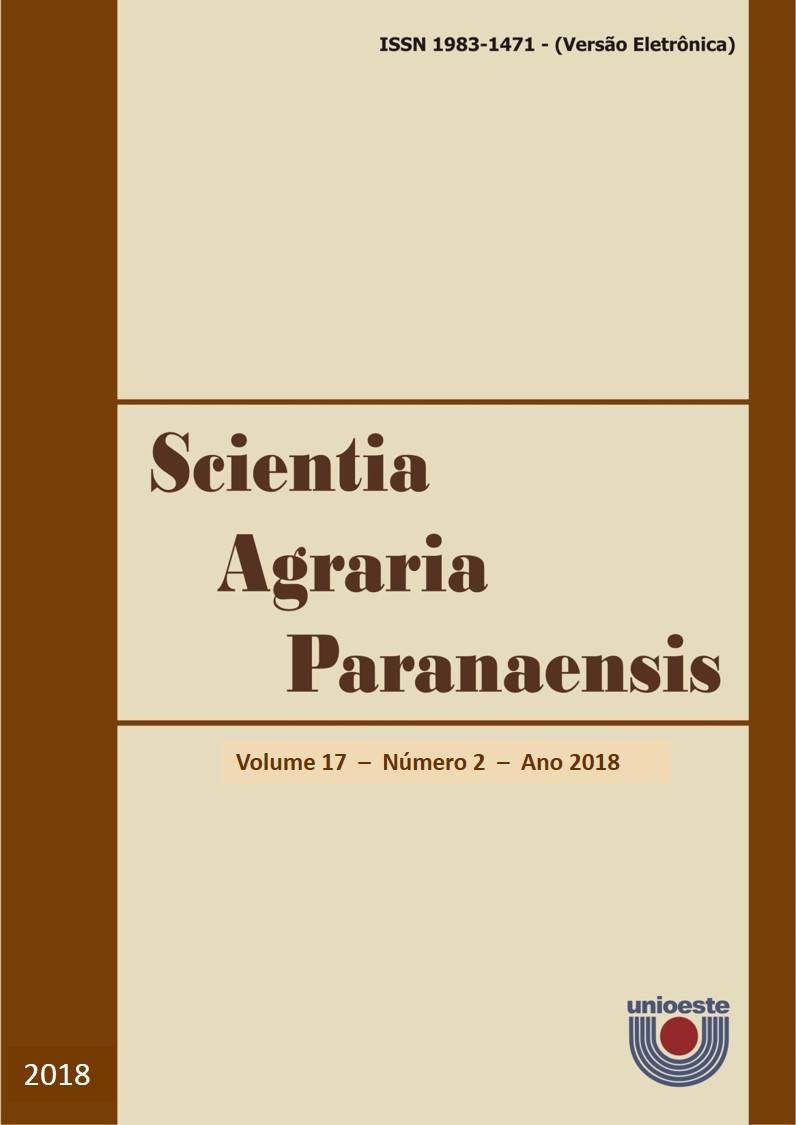USE OF CORN DDGS FOR PIGS: A SHORT REVIEW
Supporting Agencies
Keywords:
alimento alternativo, biocombustíveis, coprodutos, nutriçãoAbstract
The co-products of ethanol production from corn are referred to in the literature as dried grains with soluble distillates (dried distillers grains with solubles - DDGS). There is considerable variation in the nutritional composition of DDGS mainly due to genetic variation of corn, the ratio of added soluble prior to drying and processing heat. The production of corn ethanol in Brazil began recently but presents with enormous potential, generating huge expectations of availability of DDGS. For each megagram of corn is produced on average 401 liters of ethanol, 323 kg of CO2 and 323 kg of DDGS. The energy, protein and digestible phosphorus values of DDGS characterize it as an alternative ingredient with great potential for partial replacement of corn and soybean meal to feed pigs. The highest concentration of dietary fiber in DDGS can be one of the main reasons for the decrease in energy digestibility of DDGS compared to corn. Low DDGS inclusions can be used without prejudice to the performance of the animals, however high inclusions eventually express inferior results compared to conventional ingredients.Downloads
Published
05-09-2018
How to Cite
CORASSA, A.; LAUTERT, I. P. A. da S.; SILVA, L. L. da; SOUZA, C. de. USE OF CORN DDGS FOR PIGS: A SHORT REVIEW. Scientia Agraria Paranaensis, [S. l.], v. 17, n. 2, p. 157, 2018. Disponível em: https://e-revista.unioeste.br/index.php/scientiaagraria/article/view/16114. Acesso em: 14 jun. 2025.
Issue
Section
Revisões Bibliográficas
License
Aviso de Direito Autoral Creative Commons
Política para Periódicos de Acesso Livre
Autores que publicam nesta revista concordam com os seguintes termos:
1. Autores mantém os direitos autorais e concedem à revista o direito de primeira publicação, com o trabalho simultaneamente licenciado sob a Licença Creative Commons Attribution que permite o compartilhamento do trabalho com reconhecimento da autoria e publicação inicial nesta revista.2. Autores têm autorização para assumir contratos adicionais separadamente, para distribuição não-exclusiva da versão do trabalho publicada nesta revista (ex.: publicar em repositório institucional ou como capítulo de livro), com reconhecimento de autoria e publicação inicial nesta revista.
3. Autores têm permissão e são estimulados a publicar e distribuir seu trabalho online (ex.: em repositórios institucionais ou na sua página pessoal) a qualquer ponto antes ou durante o processo editorial, já que isso pode gerar alterações produtivas, bem como aumentar o impacto e a citação do trabalho publicado (Veja O Efeito do Acesso Livre).
Licença Creative Commons
Esta obra está licenciada com uma Licença Creative Commons Atribuição-NãoComercial-CompartilhaIgual 4.0 Internacional, o que permite compartilhar, copiar, distribuir, exibir, reproduzir, a totalidade ou partes desde que não tenha objetivo comercial e sejam citados os autores e a fonte.


